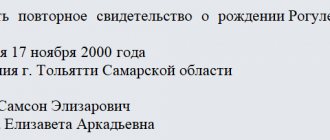Concept and legal consequences of divorce
A large legal dictionary gives the following interpretation of divorce: it is an official confirmation of the termination of the marriage relationship between a woman and a man, the only basis for the annulment of mutual legal obligations and rights.
Table No. 1 “Consequences of ending a marriage”
| Category of consequences | Peculiarities |
| Property | According to the articles of the Family and Civil Code of Russia, material assets acquired after the wedding and before the moment of divorce are recognized as common. All goods acquired after the official registration of the termination of the marriage will be considered personal property. The ex-husband will not be able to claim it |
| Financial | The income of the spouses is common, so the spending of money is carried out by mutual consent. Divorce is the basis for maintaining separate budgets. The second partner cannot make claims for profits after the divorce is officially confirmed |
| Hereditary | Husband/wife are the first priority applicants for inheritance benefits. Divorce deprives the former spouse of the right to inherit property |
| Psychological | An important commitment of marriage is mutual support, care during disability, communication and respect. After a divorce, communication issues are resolved individually. A couple can stop communicating completely or remain good friends. |
| Social | The assignment of social preferences and benefits to families occurs only in relation to the man and woman who have officially registered the union. Civil marriage is not accepted by Russian law. Divorce is the basis for the recalculation of benefits and, in most cases, their complete cancellation |
| Parental | The rights and responsibilities of a mother/father do not disappear with the dissolution of a marriage. The parent is still involved in the life of his child, protects and supports him. Regardless of the fact of separation, the ex-spouse makes important decisions regarding the upbringing, development, and maturation of the child. For children born 300 days or more after the divorce, the former spouse will not automatically be recognized as the father |
Take the survey and a lawyer will share a free divorce action plan in your case
You might find it useful:
Where to file for divorce
Samples of divorce documents
Divorce lawyer consultation
Video: how divorce happens in court
The divorce procedure can hardly be called pleasant, but careful preparation and study of the issue will shorten the process and avoid many difficulties.
Vitaly Sazonov
Lawyer, author of articles on legal topics. Education: state educational institution of higher professional education "Moscow State Open University".
Methods of divorce
Family law provides for several ways to terminate a marriage, available on the territory of the Russian Federation.
Table No. 2 “Divorce procedures”
| Competent authority | Grounds for appeal |
| District Court |
|
| Magistrate's Court |
|
| Civil registry office general order |
|
| Simplified procedure at the registry office |
|
The grounds and circumstances indicated in the table apply to the divorce of Russian citizens and foreign nationals who have confirmed their marriage in the Russian Federation.
Divorce from a foreigner in Russia
Is it possible and how to get a divorce through the registry office if there is a minor child?
Procedure for divorce
The timing, cost and procedure for divorce depend on individual circumstances and the chosen procedure for ending the union.
Table No. 3 “Algorithm of actions of participants”
| Appeal to the district/magistrate court | Divorce in the civil registry office |
|
|
The beginning of divorce proceedings in one instance does not mean that the dispute will not later be redirected to another.
For example:
- if, after submitting an application to the registry office, it is established that the couple has children, the participants file a claim in court;
- When resolving the issue in the magistrate's court, an unresolvable conflict arose. The judge with jurisdiction transfers the material to the nearest federal court of general jurisdiction.
The moment of divorce by court decision
After the final court decision is made, the parties have the right to appeal the verdict to the appellate court. The law allows 30 days for this. If during this period the participants have not expressed a desire to change the decision made, then the document comes into force.
The content of the decision itself states that in the absence of an appeal, the document acquires legal force on a specific day.
The moment of termination of marriage through the court is the date when the judicial conclusion enters into legal force. Then, within 3 days, an employee of the court secretariat transfers the original decision to the nearest registry office to enter information about the divorce into the unified register.
To obtain separate copies of the marriage termination certificate, spouses must contact the registry office. The document will be needed to confirm divorce in legal transactions. The period when a man and woman must contact the civil registry office is not limited by law.
The moment of divorce through the registry office
After receiving the spouses' applications for divorce, each of them is given a counterfoil - a notification indicating the date when they need to arrive at the registry office for a certificate. Until this day, the couple can withdraw their application at any time. If you do not want to reconcile, a note about the divorce is entered into the unified register on the specified date. This will be the moment the marriage ends. Spouses can see the date of divorce on the certificate.
Are you tired of reading? We’ll tell you over the phone and answer your questions.
Stages, procedure and features of the divorce process
There is a standard procedure for divorce through the court, determined by law. In some cases, deviations and exceptions are provided.
How the trial goes: procedure and timing
The trial takes place in two stages. After the court has accepted the statement of claim, a preliminary hearing is scheduled (no earlier than a month later), at which the judge gets acquainted with the materials, assesses the degree of their readiness for consideration and invites the parties to reconcile out of court. Only after this will it be the turn of the main meeting, where the case will be examined on its merits. There is usually at least two weeks between the preliminary and main hearings. The trial may drag on for several sessions. The court postpones consideration of the case in cases where one of the participants fails to appear or when new circumstances arise that require additional collection of evidence.
At the trial, each party has the right to speak
At the beginning of the main hearing, the court explains to the parties their rights and obligations within the framework of the consideration of the case and examines the requests submitted by the parties (until a decision is made, any of the participants in the process has the right to submit new or change their already stated demands).
Next, the judge gives the floor to the parties: listens to the plaintiff’s demands, the defendant’s position, and examines the evidence. The last part of the meeting is called the “debate of the parties” - the final word of the plaintiff and defendant, in which they once again briefly formulate their position on the case.
What questions does the judge ask and what to say in response?
Typically, at a court hearing for divorcing spouses, the judge asks:
- whether both parties agree to divorce;
- whether the spouses consider further life together impossible and why;
- is reconciliation possible and under what conditions;
- how long the couple lived together and whether they live now;
- where the former spouses will live;
- whether the defendant agrees with the claims;
If there are children together, they will ask about their future place of residence, child support and the procedure for communicating with the parent who will live separately. When property is divided, the judge will be interested in everything connected with it: cost, terms of purchase and use, etc.
You must answer essentially, truthfully and reasonably. Emotional behavior, attempts to interrupt the judge or the opposing party, and avoidance of answering essential questions are highly discouraged.
While the judge is studying documents or speaking, it is better to wait until he himself asks the question
In court, this is exactly what should be said - as it is! Only without emotions, tears, screams. Even if the defendant is furious, sputtering and yelling that this is not so, you must be calm and restrained, then the court will lean in your direction. That’s what I say: I walked, drank, behaved inappropriately. That's it, I don't see myself with this person. This was enough to make a decision right at the first meeting. They didn't even listen to him.
nutka178
https://www.woman.ru/relations/marriage/thread/4069733/
How to behave correctly at the first court hearing and convince the judge of the need for a divorce
The procedure can be accelerated with the mutual consent of the spouses. If, to the judge’s first question, both answered that they agree to divorce, the decision is made immediately. But when one defendant is against, it will be necessary to provide evidence that living together is impossible. Compelling reasons would be:
- confirmation of long-term separate residence (extracts from the house register, the fact of changing registration, acquiring a residence permit in another country, etc.);
- having a relationship with another person and intending to marry him;
- rude, threatening and humiliating behavior of the spouse;
- alcohol, drug addiction of the husband (wife);
- other significant circumstances that make living together impossible.
It is advisable to confirm all this with documents and testimony.
The husband's aggressive behavior will serve as a good reason to speed up the divorce.
If you indicate the reason - alcohol addiction, then you will be divorced without any problems. That's what I indicated. My husband did not appear at the hearing, the judge told me that I would give him a month to think about it. I say that I won’t live with him anyway, since he drinks. She says: “okay, if so. Moreover, he did not show up for the meeting.” And that's it, they got divorced)
Olga
https://www.woman.ru/relations/marriage/thread/4069733/
How to delay a divorce in court
There are three possible ways to defer the decision:
- not to appear at court hearings;
- put forward reasoned objections to divorce;
- ask for reconciliation between the parties.
If you refuse to go to court, the process can be delayed, but indefinitely. If the defendant ignores the summons three times and does not present valid reasons that prevented him from appearing at the hearing, then the divorce decision will be made in absentia, without him.
If the spouse cannot participate in the trial due to objective circumstances, it is enough for him to send a petition to the court to consider the case without him or to resort to the services of a representative.
What is a motion for reconciliation of the parties?
At the preliminary hearing, the spouses are asked if they agree to the divorce. If one of them is against, he will be asked to file a petition for a period of time for reconciliation of the parties.
Its text must indicate that the applicant considers saving the family possible, clarifies why and asks for a period for reconciliation - a maximum of 3 months.
Video: how to get a divorce quickly (legal advice)
At what point is a marriage considered dissolved?
After all the hearings, the court makes a decision. Only the operative, most important part of it is disclosed to the parties, and the parties can receive the full text of the document five days after the end of the trial. But the court's decision does not yet have legal force. At this point, it is only necessary for the party that intends to appeal. You can receive a document marked to enter into legal force only thirty days from the date of the court’s decision. This time is allotted to file an appeal. Thus, the total waiting period will last 35 days.
What does a court decision look like (example document)
The decision on divorce must contain the name of the court, the decree on divorce, indicating under which article of the law it was carried out and information about its entry into force. The text is certified by the seal of the court and the signatures of the judge and secretary; the spouses do not sign on it. You can take the decision back in court.
The court decision is drawn up on plain writing paper and certified by a seal
Extract from the court decision: why is it needed and how long is it valid?
A court decision on divorce will be required, first of all, at the registry office. As a rule, it is not submitted in its entirety, but in the form of an extract. To do this, a separate application is written to the court office; you can get the certificate itself there. You can also order an extract by mail or online if you can’t come in person. The document has no validity period and is issued within a few days.
Where and when can I get a certificate of registration of divorce?
Having copies of the decision or extract in hand, former spouses can contact the registry office to register the divorce. You can usually receive a divorce certificate a month after applying, but the marriage relationship ends when the court decision comes into force. That is, if the decision on divorce was made by the court, say, on April 15, then the date of May 15 will appear on the divorce certificate, and it will be possible to receive this certificate no earlier than June.
The divorce certificate indicates that the divorce occurred by court decision
Reasons for refusal
The court cannot leave the marriage in force if one of the spouses categorically insists on his desire to divorce even after the expiration of the reconciliation period. Only a male plaintiff can be denied a divorce if his wife is pregnant or if the child born in the marriage is less than a year old.
Filing an appeal (appealing a divorce decision)
You can challenge the court's verdict within a month from the date of the decision. The text of the decision indicates to which court and until what time an appeal can be filed. However, judicial practice indicates that the chances of a successful appeal are very low . The only grounds can be a violation of the procedure by the court or a decision in absentia when the spouse was absent from the court for a good reason and can prove it.
If the spouses change their minds about getting a divorce, it is easier to remarry than to overturn the court verdict.
Is it possible to invalidate a divorce?
The divorce is declared invalid in court on a cassation appeal. The spouses will have to prove that the rules of law and legal proceedings were violated. Grounds for declaring a divorce invalid according to the Code of Civil Procedure of the Russian Federation:
- the court of first instance incorrectly determined the circumstances relevant to the case;
- the court of first instance was unable to prove circumstances relevant to the case;
- the conclusions of the court of first instance, set out in the court decision, do not correspond to the circumstances of the case;
- the court considered the case in an illegal composition; any of the participants in the case was absent and was not informed about the place and time of the court hearing;
- other rules of judicial proceedings were violated during the consideration of the case.
Government duty
The state tax upon divorce is paid by both husband and wife. For 2021, the amount of the fee is 650 rubles for each divorcing spouse. It is noteworthy that if a marriage is dissolved through the registry office, the amount remains the same. The fact is that these funds are used to cover the costs associated with registering a divorce and issuing a divorce certificate.
State fees for divorce are paid by both spouses
Details for paying the state fee can be found at the reception desk or on the official website of the court that will consider the case.
Obtaining a divorce certificate
Table No. 4 “Divorce Certificate”
| Circumstances | MARRIAGE REGISTRY | Court |
| Order |
|
|
| Term | 30 days from the date of filing the petition for divorce | 10-15 days from the date of transfer of the court decision |
| Documentation |
|
|
Divorce stamp in passport
When issuing a completed certificate, the registry office employee makes a note about the divorce in the passport of each spouse. It contains information about the date of dissolution of the union and the registration number of entering data into the register.
A stamp in your passport is not required, but if you are involved in legal transactions and do not have a divorce certificate on hand, a stamp will allow you to confirm the official end of the union.
Other reasons for ending a marriage
Special cases:
- Recognition of a partner as missing in court. Declaration as missing does not in itself provide for an automatic divorce. But now the spouse has the right to apply to terminate the union unilaterally through the registry office.
- The death of a partner does not give the right to divorce. The second spouse is considered a widower, that is, he retains a number of marital rights and obligations (for example, inheritance). You just have to contact the registry office to obtain a person’s death certificate.
Lawyer's answers to frequently asked questions
My husband and I filed an application for divorce in court, and the court made a decision. What will be considered the date of divorce: the date the court decision enters into legal force or the issuance of a divorce certificate?
From the moment the court decision enters into legal force, the spouses are considered divorced.
How long after the divorce from my ex-husband can I submit an application to the registry office for a new marriage?
The law does not limit the right to register new marital relations after the termination of the previous union. You can submit an application for registration after the civil registry office employees have entered information about the divorce into the unified register (after receiving the divorce certificate).
Three months ago I received a court decision on divorce, but did not contact the registry office. Can there be any consequences and is the marriage considered dissolved?
Yes, the marriage is completely over. Mutual rights and obligations are lost. Information about the divorce has already been entered by civil registry officials into the unified register. You can apply for a certificate (original, duplicate, copy) at any time. There is no penalty for ignoring requirements. But without a certificate, the spouse will not be able to take part in legal transactions or enter into a new marriage.
6.Legal consequences of ending a marriage
Establishing the moment of termination of a marriage upon its dissolution has very important legal significance, since it is from this time that personal and property legal relations between the spouses that arise from the date of state registration of the marriage in the registry office are terminated, with the exception of cases provided for by law.
In Article 25 of the Family Code of the Russian Federation, the moment of termination of marriage is determined taking into account the procedure for divorce applied (that is, in the registry office or in court).
If the marriage is dissolved in the registry office, then according to paragraph 1 of Art. 25 of the Family Code of the Russian Federation, it is considered terminated from the date of state registration of divorce in the civil registration book, which is carried out in accordance with the Civil Status Law. The basis for registering the dissolution of such a marriage is a joint application of the spouses or an application of one of the spouses if the other spouse is recognized in accordance with the established procedure as missing, incompetent or sentenced to imprisonment for a term of more than three years.
According to paragraph 1 of Art. 25 of the RF IC, when a marriage is dissolved in court, the moment of its termination is the date the corresponding court decision enters into legal force. The court decision comes into force after the expiration of the period for cassation appeal and protest, if it has not been appealed and protested. A cassation appeal or protest can be filed within ten days after the court makes a final decision (Article 208 of the Code of Civil Procedure). In the event of a cassation appeal or cassation protest, the decision, if it has not been cancelled, enters into legal force upon consideration of the case by a higher court.
Within three days from the moment the decision enters into legal force, the court sends an extract from the decision to the civil registry office. The extract must contain the information necessary for registering the divorce with the civil registry office in the civil registration book: time of marriage registration, registration number, name of the body that registered the marriage, number of common children under 18 years of age. State registration of divorce is carried out by the civil registry office at the place of state registration of marriage on the basis of an extract received from the court decision on divorce or at the place of residence of the former spouses (either of them) on the basis of an extract from the court decision and an application from both or one of them spouses, or applications from the guardian of the incapacitated spouse. An application for state registration of divorce can be made either orally or in writing. Former spouses (each of them) or the guardian of an incapacitated spouse have the right to authorize other persons in writing to make an application for state registration of divorce (Article 35 of the Civil Status Law). Let us note that the state registration of divorce in this case is only of a certification nature and the law no longer connects it with the moment of termination of the marriage.
In accordance with paragraph 3 of Art. 169 RF IC, clause 1, art. 25 of the RF IC, which establishes the moment of termination of a marriage upon its dissolution in court from the date the court decision enters into legal force, is applied when a marriage is dissolved in court after May 1, 1996. Before this, the norms of the Code on Marriage and Family of the RSFSR of 1969 were in force, in according to which the marriage was considered terminated from the moment the dissolution was registered in the civil register. In addition, the courts had no obligation to submit extracts from decisions on divorce to the civil registry authorities. Thus, if none of the spouses applied to the civil registry office with a request to register a divorce, then their marriage was considered preserved, despite the court decision. The law also did not provide for the forced execution of court decisions on divorce. Established Art. 345 of the Civil Procedure Code of the Russian Federation, the three-year period for forced execution of decisions in civil cases was not applied in cases of divorce. In practice, all this introduced uncertainty into the relationship between the spouses and gave rise to a number of problems. Establishment of paragraph 1 of Art. 25 of the IC of the new rule on determining the moment of termination of a marriage upon its dissolution in court led to the elimination of uncertainty in the regulation of marriage and family relations [17].
So, despite the fact that a marriage dissolved in court is terminated from the day the court decision enters into legal force, spouses (former) do not have the right to enter into a new marriage until they receive a certificate of divorce from the registry office at the place of residence of any of them. To obtain a divorce certificate, you must provide an extract from the court decision and a receipt for payment of the amount of state duty established by the court.
The legal consequences of divorce are the termination for the future of personal and property legal relations that existed between the spouses during the marriage. At the same time, some legal relationships are terminated immediately after the divorce, others can be preserved either at the request of the spouse (for example, maintaining the marital surname - Article 32 of the RF IC; payment of compensation to a spouse for divorce on the initiative of the other spouse in accordance with the marriage contract - Article 42 of the RF IC) or by virtue of the direct establishment of the law. Thus, by virtue of the law (Article 9 of the RF IC), a needy disabled spouse retains the right to receive maintenance from the former spouse if he became disabled before the divorce or within a year from the date of divorce. Preservation of the marital surname depends on the discretion of the spouse who adopted the surname of the other spouse upon marriage (Article 32 of the RF IC).
With the termination of a marriage, the legal regime of the property of the spouses ceases to apply, that is, the regime of their common joint property, but provided that the spouses have divided the property acquired jointly during the marriage. If the spouses have not divided the common property, then even after the divorce it continues to remain common under the appropriate legal regime, since it was acquired during the marriage. Divorce itself, without division of property, cannot transform the common joint property of the spouses into shared or separate property. In connection with the dissolution of marriage, the provisions of Art. 35 of the RF IC there is a presumption of the consent of the spouse to enter into a transaction for the disposal of common property by the other spouse. For one of the divorced spouses to complete a transaction to dispose of common property, the express consent of the other owner of the property, that is, the divorced spouse, is required. Issues regarding the division of marital property will be discussed below.
It is possible that after the divorce, the spouses live together and acquire some property. In this case, the property they acquire becomes the object of personal (private) property of each of the divorced spouses or their common shared property.
With the dissolution of a marriage, spouses also lose other rights provided for in other branches of law: the right to receive inheritance under the law after the death of the former spouse; the right to pension benefits in connection with the loss of a spouse on grounds established by law.
The moment of termination of a marriage is of important practical importance, for example, in the event of the death of a spouse during the payment of insurance compensation. Thus, a citizen whose marriage was dissolved in court, when submitting an application to register a new marriage with another person, is required to submit a document confirming the fact of termination of the previous marriage. However, if the civil registry authorities mistakenly accept a court decision that has not entered into legal force as a supporting document (for example, when filing an appeal), and a new marriage is registered, the second marriage is not legal. In this case, if after this registration the spouse dies, then each of the women can claim inheritance and insurance compensation. In accordance with Art. 14 of the RF IC, which prohibits marriage with a person who is already married, a notary cannot issue certificates of inheritance until the issue of the illegality of one of the marriages is resolved in court.
The moment of termination of the marriage is associated with the determination of the period during which the presumption of paternity of the former spouse of the mother of the born child is valid. In accordance with paragraph 2 of Art. 48 of the RF IC, this period is 300 days. Also, from the moment of termination of the marriage, the marriage contract ceases to be valid, with the exception of those obligations that are provided for in the marriage contract for the period after the termination of the marriage (clause 3 of Article 43 of the Family Code).
From the moment the marriage ends, the former spouse’s right to use residential premises owned by the right of sole ownership to the other spouse is terminated, i.e. it is not included in the common property of the spouses. In accordance with Art. 31 of the Housing Code of the Russian Federation, in the event of termination of family relations with the owner of a residential premises, the right to use this residential premises for a former family member of the owner of this residential premises is not retained, unless otherwise established by an agreement between the owner and the former member of his family. If a former family member of the owner of a residential premises does not have grounds for acquiring or exercising the right to use another residential premises, and also if the property status of a former family member of the owner of a residential premises and other noteworthy circumstances do not allow him to provide himself with another residential premises, the right to use the residential premises belonging to the specified owner may be retained by a former member of his family for a certain period based on a court decision. In this case, the court has the right to oblige the owner of the residential premises to provide other residential premises for the ex-spouse and other members of his family, in whose favor the owner fulfills alimony obligations, at their request.
Upon expiration of the period of use of the residential premises, established by a court decision, taken taking into account the provisions of Part 4 of Art. 31 of the Housing Code of the Russian Federation, the corresponding right to use the residential premises of a former family member of the owner is terminated, unless otherwise established by agreement between the owner and the former member of his family. Before the expiration of the specified period, the right to use the residential premises of a former family member of the owner is terminated simultaneously with the termination of the ownership right to this residential premises of this owner or, if the circumstances that served as the basis for maintaining such a right have ceased, on the basis of a court decision.
A citizen who uses residential premises on the basis of an agreement with the owner of this premises has rights, bears duties and responsibilities in accordance with the terms of such an agreement (Parts 4 - 7 of Article 31 of the Housing Code of the Russian Federation).
Other consequences of the termination of a marriage arise for the former spouse living in the apartment of the tenant of the residential premises under a social tenancy agreement. If a citizen ceases to be a member of the family of the tenant of the residential premises under a social tenancy agreement, but continues to live in the occupied residential premises, he retains the same rights as the tenant and members of his family. The specified citizen is independently responsible for his obligations arising from the relevant social tenancy agreement (clause 4 of article 69 of the Housing Code).
Notes:
1
Civil proceedings: features of consideration of certain categories of cases: Proc. - practical allowance / Answer. ed. V.V. Yarkov. M., 2001. P. 248.
17
Pavlodsky A. Judicial protection of the rights and interests of citizens - M., 1986. P. 211–231.
Table of contents









